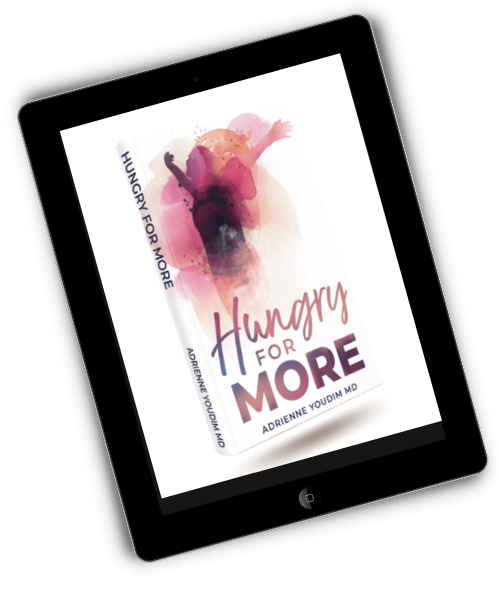Mental health awareness month seems so important right now. While mental illness has steadily increased in the US, the pandemic really exacerbated matters. The number of people who reported symptoms of anxiety or depression tripled during the pandemic as did substance use and substance abuse. For many, bonafide treatments like medications and/or psychotherapy are warranted. And for many who are taking advantage of these treatments and not feeling their best or may not feel the severity of their symptoms match the need for these therapies, and yet their mental and emotional well-being has taken a toll.
What then?
Fortunately, there are interventions at our disposal that can be impactful, including being intentional about our diet.
I am not suggesting that we use berries to treat major depressive disorder- that is just insulting, but I am suggesting that we don’t minimize the importance of food in promoting good mental and emotional health.
Hippocrates- the father of modern medicine once said, “Bad digestion is the root of all evil.” A bit dramatic? Perhaps, but maybe not.
When we were first conceived, we developed into a blob of cells, I know that doesn’t sound sexy but that’s really the truth. And then those cells specialized and ultimately formed arms and livers and toes. One group of specialized cells called the neural crest cells became the substance of our brain and the gut.
The gut actually contains between 100-500 million neurons or brain cells giving it the name “the second brain”
The brain and gut are very closely connected in other ways. For example, by the vagus nerve that begins in the brain stem and ends in the walls of the gut. The vegas nerve is essentially a freeway that allows these two organs to communicate and share information.
It’s no wonder that our gut health and the food that we consume impacts our brain!
Let’s talk Microbiota- the trillions of bacteria and microbes that cohabitate with us in our gut.
These bacteria help us with many necessary processes like digestion, immunity, and even mental and emotional wellbeing. The health of the bacteria in our gut is reflected in the brain. For example, when the good bacteria are killed off by a poor diet, the “bad” bacteria populate and cause inflammation which is transmitted to the brain. This neuroinflammation impacts brain function as well as mood. So let’s talk about some of the main culprits.
Sugar:
- Higher blood sugar is associated with lower Brain-derived neurotrophic factor (BDNF)- a protein that helps the brain grow, and develop as well as helping the brain adapt to stress.
- 1 can of Sugar-Sweetened Beverages daily increases the risk of depression by 5%
- 2.5 cans of soda (which is nearly 100 grams of sugar) increases risk by 25%
- Don’t forget that highly processed carbs are essentially sugar- white bread, pasta, pastries.
- One study showed that people who consumed the highest quality carbs had a 30% reduced incidence of depression than those eating high glycemic carbs.
Artificial sweeteners:
- Artificial sweeteners can be toxic to the brain, altering concentrations of mood-regulating neurotransmitters.
- Aspartame increases concentrations of substances that inhibit the release of happy hormones such as dopamine and serotonin
- Aspartame also causes oxidation which increases free radical formation in the brain which compromises cellular brain health.
Fat: (remember not all fats are the same)
- Trans fats are by far the most evil. They include margarine, shortening, and hydrogenated oils and are found in pastries, packaged foods, and fried foods.
- Studies have linked trans fats to a higher risk of depression, whereas PUFA and MUFA lowered depression risk.
Nitrates:
- Found in cured meats, cold-cuts, and deli meats and sausages alter gut bacteria in a negative way and have been shown to increase the risk of depression (not to mention colon cancer and heart disease)
So what should we eat for optimal mood?
- Omega 3 fatty acids found in cold-water fatty fish including salmon, mackerel, tuna, herring, and sardines. Other fish like tilapia, sea bass, shellfish, and cod are close seconds. Don’t forget other sources including certain nuts and seeds such as walnuts and chia seeds
- Probiotics and prebiotics -foods high in probiotics: tempeh, miso, keric, kimchi, sauerkraut, natto (fermented soybean) kombucha, buttermilk, certain cheese, and prebiotics- certain indigestible fibers such as bananas, beans, and legumes, oats, berries are essential to maintaining healthy gut bacteria.
- B v=Vitamins including folate are found in leafy greens, cruciferous veggies, nuts, seeds, and legumes. B12 is found in animal products like eggs, milk, and poultry. B vitamins have been shown to be critical to brain health and affect mood in a positive way.
- Vitamin D: Vitamin D is involved in serotonin metabolism and deficiency has been associated with depression. Get Vitamin D fortified in many foods such as dairy and also get your daily dose of sunlight which allows your body to generate Vitamin D in your skin.
Seasoning, spices, and herbs:
- In one study 15 mg of saffron was as effective as 20 mg of Prozac! Saffron appears to increase neurotransmitters important to brain health such as glutamate and dopamine.
- Curcumumin, the active ingredient in turmeric, has been shown to improve brain health, is anti-inflammatory and an antioxidant and has been shown to have mood-boosting properties. (Remember that piperine found in black pepper makes the active ingredient more bioavailable for absorption.
- Oregano has been found to be neuroprotective and to have antidepressant properties in animal studies. A good indication that it can do the same for humans!
So, to sum up.
Foods to consume in abundance:
- Veggies
- Probiotics
- Prebiotic
- Low Glycemic Index Carbs
- Healthy Fats
- Omega 3 Fatty Acids
- Spices like Turmeric, and Saffron
- Herbs like Oregano
Foods to avoid:
- Sugar
- High GI Carbs
- Artificial Sweeteners- in particular, Aspartame
- Fried Foods
- Trans Fat
- Nitrates
- Ultra-Processed Foods
And last but not least be intentional about feeding yourself. Make time for yourself, cook for yourself. This act of self-care can be healing in of itself!
If you loved what you read, give it a clap and share it with someone you love.
In good health.
Xx,
Dr. Adrienne


